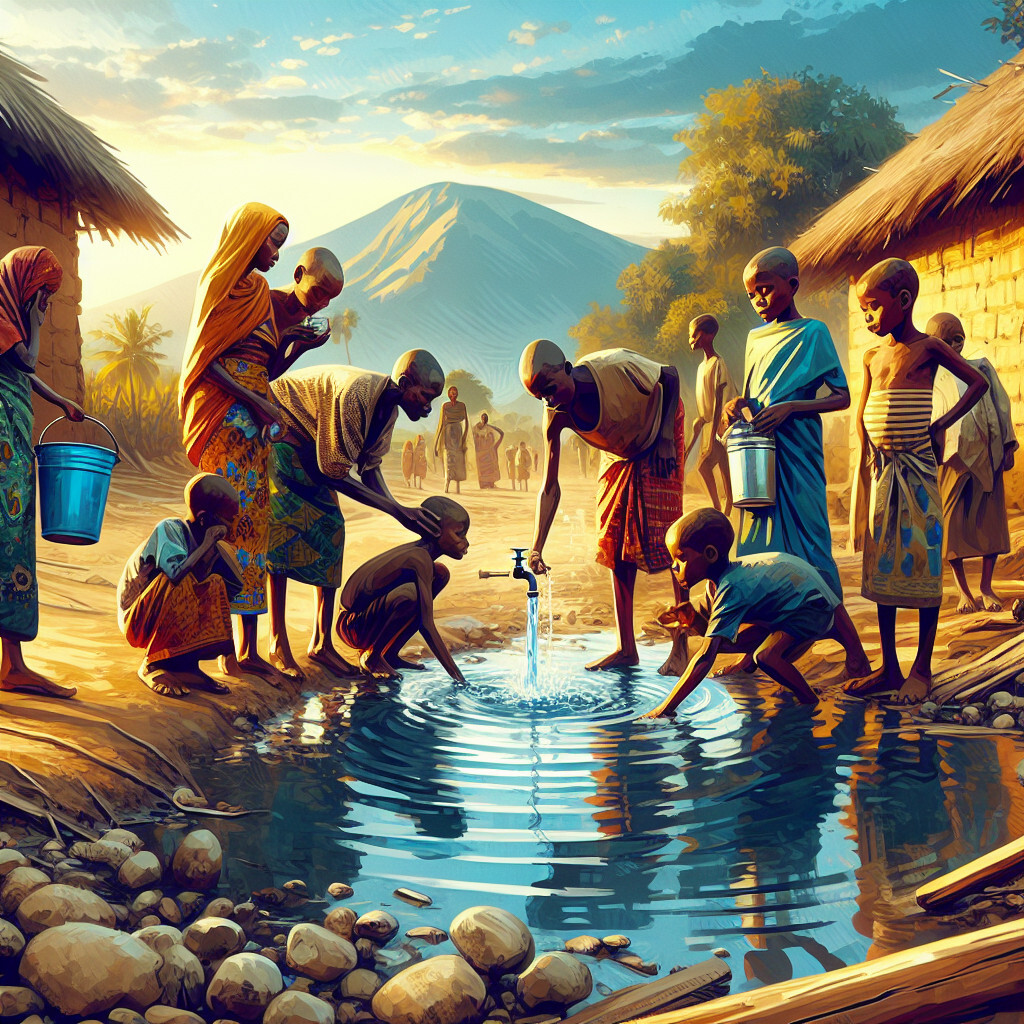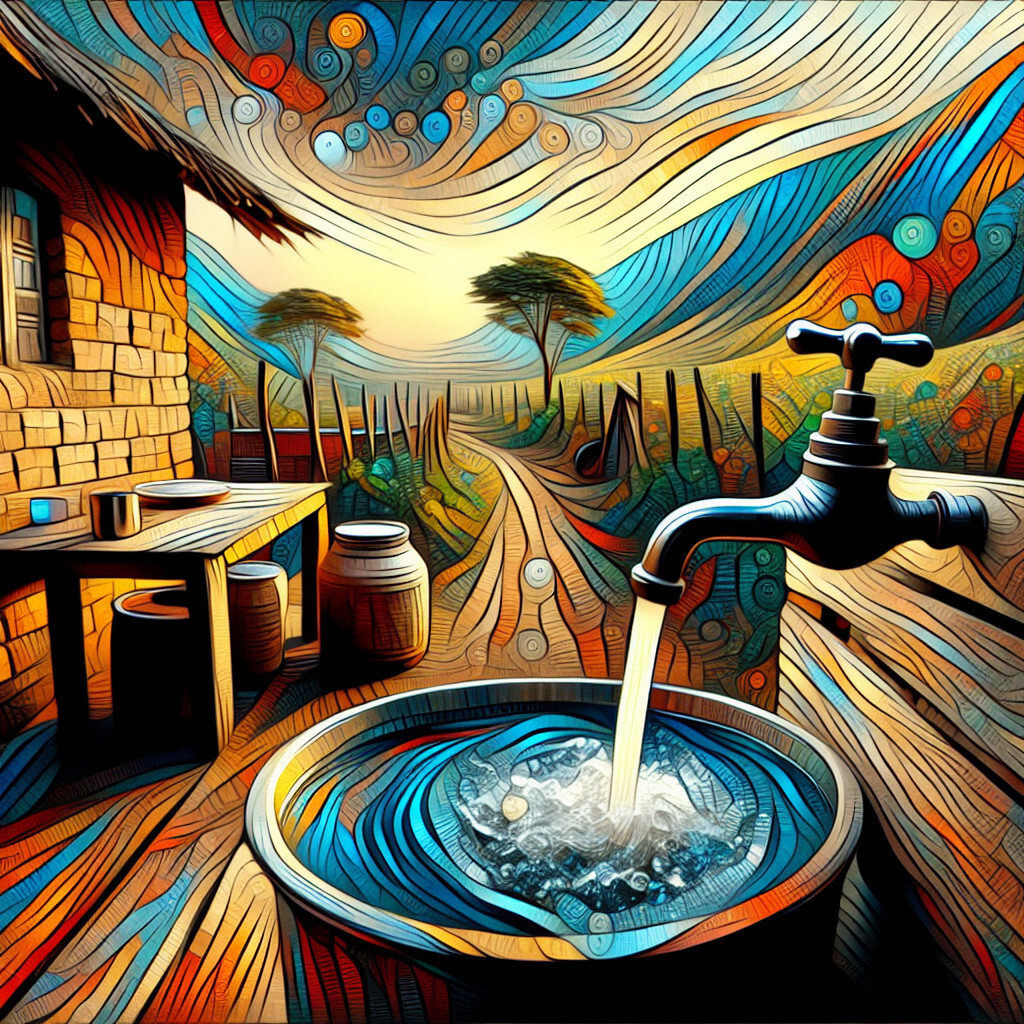-
Table of Contents
“Malawi’s Tap Water: A Challenge of Quality and Accessibility”
Introduction

The tap water in Malawi is generally not safe for direct consumption due to contamination. The country struggles with providing clean and safe drinking water to its population, especially in rural areas. The water infrastructure is often inadequate, leading to issues with waterborne diseases. While efforts are being made to improve the water quality, it is recommended to boil or treat tap water before drinking.
Understanding the Quality of Tap Water in Malawi
Malawi, a landlocked country in southeastern Africa, is known for its stunning landscapes, rich culture, and warm-hearted people. However, beneath this beautiful facade lies a pressing issue that has been plaguing the nation for years – the quality of its tap water. The state of tap water in Malawi is a matter of grave concern, with a significant portion of the population lacking access to clean and safe drinking water.
The quality of tap water in Malawi is largely influenced by the country’s geographical location and climatic conditions. The country is predominantly rural, with many communities relying on rivers, wells, and boreholes for their water supply. These sources are often contaminated with harmful bacteria and parasites, leading to a high prevalence of waterborne diseases such as cholera and typhoid. Moreover, the lack of adequate sanitation facilities further exacerbates the problem, as waste often seeps into the water sources, contaminating them.
In urban areas, the situation is slightly better, but not by much. The tap water supplied by the Water Boards is treated and generally safe to drink. However, the infrastructure is old and often breaks down, leading to interruptions in the water supply. During these times, residents are forced to rely on alternative sources of water, which may not be safe. Furthermore, the water treatment process is not always effective, and there have been instances where the tap water has been found to contain high levels of harmful chemicals.
The government of Malawi has been making efforts to improve the quality of tap water. Several projects have been initiated to upgrade the water infrastructure and increase access to clean water. International organizations such as the World Bank and UNICEF have also stepped in, providing financial and technical assistance to improve water and sanitation services. These efforts have yielded some positive results, with an increase in the number of people with access to clean water.
However, there is still a long way to go. The quality of tap water in Malawi remains inconsistent, and many people still lack access to safe drinking water. The situation is particularly dire in rural areas, where the majority of the population lives. Here, the lack of infrastructure and resources makes it difficult to provide clean water to all residents.
In conclusion, the quality of tap water in Malawi is a complex issue that is influenced by a variety of factors, including geographical location, climatic conditions, and infrastructure. While efforts are being made to improve the situation, much work remains to be done. It is crucial that the government, with the support of international organizations, continues to invest in water and sanitation infrastructure, and implement effective water management strategies. Only then can the people of Malawi have consistent access to clean and safe tap water.
The Impact of Infrastructure on Malawi’s Tap Water Supply
Malawi, a landlocked country in southeastern Africa, is known for its stunning landscapes, rich culture, and warm-hearted people. However, beneath this beautiful facade lies a pressing issue that has been plaguing the nation for years – the quality and accessibility of tap water. The state of Malawi’s tap water supply is largely influenced by the country’s infrastructure, which unfortunately, is not as robust as it should be.
The infrastructure of a country plays a pivotal role in determining the quality and availability of tap water. In Malawi, the water supply infrastructure is characterized by a mix of traditional and modern systems. The traditional systems, which are prevalent in rural areas, involve the use of unprotected wells and springs. These sources are often contaminated with harmful bacteria and other pollutants, making the water unsafe for consumption. On the other hand, the modern systems, which are more common in urban areas, involve the use of piped water. However, these systems are not without their own set of challenges.
The piped water systems in Malawi are managed by the country’s water boards. These boards are responsible for the treatment and distribution of water in their respective areas. However, due to inadequate funding and poor maintenance, these systems often fail to deliver clean and safe water to the consumers. The water treatment plants are often outdated and lack the necessary equipment to effectively remove all contaminants from the water. As a result, the tap water in many urban areas is often discolored and has a distinct taste and odor.
Furthermore, the distribution networks are often riddled with leaks and breaks, leading to significant water losses. This not only exacerbates the issue of water scarcity but also increases the risk of contamination. When water leaks from the pipes, it can come into contact with contaminants in the soil and other environments, which can then enter the water supply. This is particularly concerning in areas where sanitation facilities are poor, as it increases the risk of waterborne diseases.
The situation is further compounded by the rapid urbanization and population growth in Malawi. As more people move to the cities, the demand for water increases, putting additional strain on the already struggling water supply systems. This often leads to water rationing, with some areas receiving water for only a few hours a day. This not only inconveniences the residents but also forces them to resort to unsafe water sources, thereby increasing their risk of water-related illnesses.
In conclusion, the state of Malawi’s tap water supply is a reflection of the country’s infrastructure. The lack of investment in water supply infrastructure, coupled with rapid urbanization and population growth, has resulted in a situation where clean and safe tap water is a luxury for many Malawians. This not only poses a serious threat to public health but also hampers the country’s socio-economic development. Therefore, there is an urgent need for the government and other stakeholders to invest in improving the country’s water supply infrastructure. This will not only ensure the provision of clean and safe tap water but also contribute to the overall development of the country.
Health Implications of Drinking Tap Water in Malawi
In the heart of southeastern Africa, Malawi, often referred to as the “Warm Heart of Africa,” is a country known for its stunning landscapes and friendly people. However, beneath this charming facade lies a pressing issue that has been plaguing the nation for years – the quality of its tap water. The health implications of drinking tap water in Malawi are a matter of grave concern, and it is crucial to shed light on this issue.
The primary source of drinking water for a significant portion of Malawi’s population is tap water. However, the quality of this water is often compromised due to inadequate sanitation facilities, poor infrastructure, and contamination from various sources. The water supply in many parts of the country is not treated adequately to remove harmful bacteria, viruses, and parasites, which can lead to a host of health problems.
One of the most common health issues associated with drinking contaminated tap water in Malawi is diarrhoea. This condition, while treatable, can be fatal, especially in children under the age of five. The World Health Organization (WHO) reports that diarrhoea is the second leading cause of death in children under five worldwide, and in Malawi, a significant number of these cases are attributed to contaminated water.
In addition to diarrhoea, other waterborne diseases such as cholera and typhoid fever are also prevalent in Malawi. These diseases are caused by bacteria that thrive in contaminated water and can cause severe illness and even death if not treated promptly. The risk of contracting these diseases is particularly high in rural areas where access to clean water and sanitation facilities is limited.
Furthermore, the consumption of contaminated tap water can also lead to long-term health effects. For instance, the presence of heavy metals such as lead and mercury in water can lead to neurological disorders and developmental issues in children. Similarly, the ingestion of water contaminated with harmful chemicals can increase the risk of developing certain types of cancer.
The government of Malawi has been making efforts to improve the quality of tap water in the country. Several initiatives have been launched to expand access to clean water and improve sanitation facilities. However, these efforts have been hampered by a lack of resources and the challenges posed by rapid urbanization and population growth.
Non-governmental organizations (NGOs) and international aid agencies have also been working to address this issue. They have been providing technical assistance and funding for water and sanitation projects, as well as conducting awareness campaigns to educate the public about the importance of drinking clean water.
Despite these efforts, the problem of contaminated tap water in Malawi remains a significant public health concern. It is a complex issue that requires a multi-faceted approach, involving not just improvements in water treatment and sanitation, but also education and behavior change at the community level.
In conclusion, the health implications of drinking tap water in Malawi are severe and far-reaching. While efforts are being made to address this issue, there is still a long way to go. It is crucial for the government, NGOs, and the international community to continue working together to ensure that every person in Malawi has access to clean, safe drinking water.
Solutions to Improve the Tap Water Situation in Malawi
In the heart of Africa, Malawi, known as the “warm heart of Africa,” is a country that is grappling with a significant challenge: providing clean, safe tap water to its citizens. The tap water situation in Malawi is a pressing issue that requires immediate attention and sustainable solutions.
The quality of tap water in Malawi is generally poor, primarily due to inadequate sanitation facilities, lack of proper water treatment, and contamination from various sources. The water is often turbid and contains harmful bacteria and other pathogens, making it unsafe for consumption without proper treatment. This situation is particularly dire in rural areas, where access to clean water is even more limited.
The government of Malawi, in collaboration with various non-governmental organizations, has been working tirelessly to improve the tap water situation. One of the key strategies has been the construction of boreholes and shallow wells in rural areas. These provide a more reliable source of water than rivers and streams, which are often contaminated. However, while this has increased access to water, the quality of the water from these sources is still a concern.
To address the issue of water quality, there has been a push towards implementing water treatment systems. These range from simple household-level solutions, such as boiling or using chlorine tablets, to more complex community-level systems that involve filtration and disinfection. The challenge, however, lies in ensuring that these systems are used correctly and consistently, and that they are maintained properly to ensure their effectiveness over time.
Another solution that has been explored is rainwater harvesting. This involves collecting and storing rainwater for use during the dry season. This not only provides an additional source of water but also reduces the pressure on existing water sources. However, this method also has its challenges, including the need for proper storage facilities and treatment to ensure the water is safe for consumption.
Education and awareness-raising are also crucial in improving the tap water situation in Malawi. Many people are not aware of the risks associated with consuming untreated water, and therefore do not take the necessary precautions to ensure their water is safe. Efforts are being made to educate communities about the importance of water treatment and hygiene practices, and to provide them with the knowledge and skills to implement these practices in their daily lives.
In addition, there is a need for stronger policies and regulations to govern water management in the country. This includes ensuring that water sources are protected from contamination, that water treatment facilities are adequately maintained, and that there is a system in place to monitor water quality regularly.
In conclusion, while the tap water situation in Malawi is a complex issue with many challenges, there are a number of potential solutions that can help to improve the situation. These include increasing access to water through the construction of boreholes and wells, implementing water treatment systems, promoting rainwater harvesting, educating communities about water safety, and strengthening water management policies and regulations. With concerted effort and commitment, it is possible to ensure that every citizen of Malawi has access to clean, safe tap water.
Q&A
1. Question: Is the tap water in Malawi safe to drink?
Answer: No, the tap water in Malawi is generally not considered safe to drink. It’s recommended to drink bottled or boiled water.
2. Question: What are the common contaminants in Malawi’s tap water?
Answer: The common contaminants in Malawi’s tap water include bacteria, viruses, and parasites such as cholera and typhoid.
3. Question: What is the government doing to improve the tap water quality in Malawi?
Answer: The government of Malawi, with the help of international organizations, is working on various water and sanitation projects to improve the quality of tap water.
4. Question: How does the quality of tap water in Malawi affect its residents?
Answer: The poor quality of tap water in Malawi often leads to waterborne diseases among residents, particularly in rural areas where access to clean water is limited.
Conclusion
The tap water in Malawi is generally not safe to drink due to contamination issues, including bacteria, viruses, and waterborne diseases. Despite efforts to improve the water supply infrastructure, access to clean and safe drinking water remains a significant challenge in the country. Therefore, it is advisable to boil or treat tap water before consumption.






